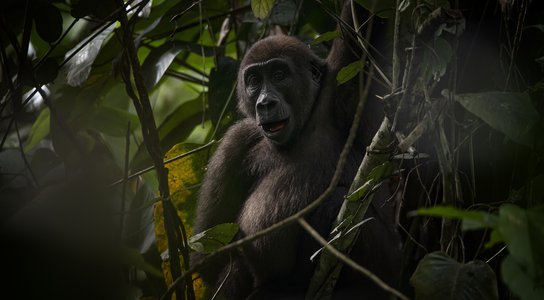Top institutional shareholders in Bunge Limited yesterday threw their weight behind a call for the company to do more to protect forests in the Brazilian Cerrado - a vast biodiverse savannah and a vital carbon sink. While the investor proposal is welcome, urgent action is needed to tackle deforestation and human rights abuses, according to campaigners.
Bunge is one of the world’s largest commodity traders, and at its Annual General Meeting a majority of shareholders backed a proposal critical of Bunge’s contributions to deforestation and native vegetation clearance in Latin America, particularly Brazil. In a resolution put forward by Green Century Capital Management - an investment firm with $825m of assets under management - the motion calls on Bunge to report “if and how it could increase the scale, pace, and rigor of its efforts to eliminate native vegetation conversion in its soy supply chain”.
The vote is significant, and a sign of growing pressure on the trader to take meaningful action. Although Bunge has a commitment to eliminate deforestation from its supply chains, its operations and supply chains continue to have substantial exposure to deforestation and native vegetation conversion. Bunge’s deforestation risk is far higher than any other commodity trader: in Brazil alone, Bunge’s soy operations were linked to deforestation in an area four-fifths the size of Chicago between 2015 and 2018.
Green groups stressed that Bunge and its shareholders need to go much further if they are to genuinely tackle environmental and human rights abuses in their value chains. Both Global Witness and Friends of the Earth U.S. highlighted in a shareholder briefing that Bunge’s woeful environmental and social performance highlights a serious shortcoming in its overall ability to identify and prevent harms in its supply chain.
“For too long Bunge’s role in driving deforestation and related human rights risks in its soy and palm oil supply chains has presented a significant risk to both investors and the environment”, said Ali Hines, Senior Campaigner at Global Witness. “Whilst this latest investor proposal is a welcome move, Bunge and its shareholders must urgently take more radical action to identity, prevent, and remedy human rights, environmental and corruption risks linked to their overall value chains.”
The vote also highlights the role that investors can and should play to prevent financing harms. The world’s largest financial institutions continue to sink vast sums into companies levelling forests in their operations or supply chains, often in blatant violation of their own deforestation policies and public commitments, if they have them at all.
“While asset managers are just waking up to the need to address industrial agricultural-driven deforestation, they continue to finance companies responsible for repeated environmental and human rights abuses. These powerful investors have no clear policies or practices in place to prevent their investments from enabling the worst impacts of the climate crisis,” said Gaurav Madan, Senior Forest and Land Campaigner at Friends of the Earth U.S.
As such, Global Witness and Friends of the Earth are calling
for mandatory corporate due diligence and liability to be introduced across all
sectors, including those who provide finance to businesses; and to call for the
strengthening of current proposed laws to tackle deforestation in supply chains
and finance.


